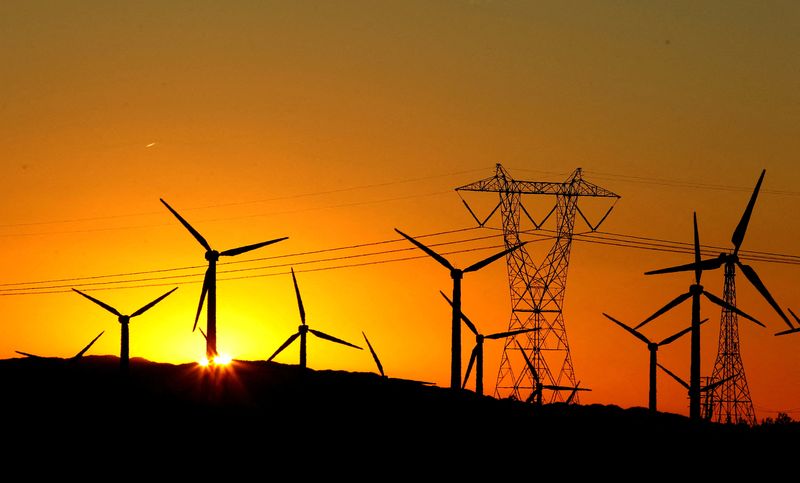By Valerie Volcovici
WASHINGTON (Reuters) – The Biden administration on Wednesday proposed expanding tax credits that have for years boosted U.S. solar and wind energy projects to cover a wider range of clean energy technologies including nuclear fission and fusion.
The Treasury Department announced its guidance for Clean Electricity Production Credits and Clean Electricity Investment Credits, created under the 2022 Inflation Reduction Act, that will be available in 2025 as the previously available wind and solar production and investment tax credits sunset.
“The Inflation Reduction Act’s new technology-neutral Clean Electricity credits, which will come into effect in 2025, are one of the law’s most significant contributions to tackling the climate crisis,” John Podesta, Senior Advisor to the President for International Climate Policy, said in a statement.
He said they will help the U.S. meet its goal to achieve a net-zero emission power sector by 2035.
The proposal identifies a half-dozen technologies that may be eligible to qualify for the lucrative tax credits, including marine and hydrokinetic energy, nuclear fission and fusion, hydropower, geothermal and some forms of waste energy recovery. The credits were as high as 30% for wind and solar projects if all conditions were met.
Treasury Secretary Janet Yellen told reporters that the IRA has already driven over $850 billion in clean energy and manufacturing investment from the private sector and led to record additions of renewable energy capacity.
The new program is “the next key step,” she said.
“These credits … make an unprecedented long-term commitment to the clean energy sector to ensure the U.S. is a major market for new clean power generation over the next decade and beyond,” she said.
Research firm the Rhodium Group estimated that credits could result in a reduction of 300-400 million tonnes of GHG emissions compared to no tax credits in 2035, a cut of 29%-46%.

Some environmental groups flagged concerns that the tax credits for zero greenhouse gas emissions technology could end up supporting controversial energy sources, such as burning waste or methane biogas captured from landfills.
“The Biden Administration must prevent dirty energy from co-opting billions in taxpayer dollars,” said Sarah Lutz, a campaigner for Friends of the Earth.

